What does it mean to 'decolonise' a city?
Also, getting involved in activism is the ultimate lifehack.
Do you know how easy it is to run away?
I took leave from the Green Fix for the summmer. Stopped reading climate headlines and didn’t open my inbox. Got on a train to Berlin.
When I was there, I made small talk with people in cafes and petition-holders in the street. I found myself telling white lies. Told them I was Belgian, was vague about whether I was working or a student.
I don’t know why I lied. I guess it felt grand to call myself an activist while in the process of actively running away from my work. It’s rare that I share my work in climate activism without it leading to a longer debate and being told It’s Great That I Do This.
And right then in that moment, I’ll be honest. I didn’t want to do this. I have writer’s block and I run out of ways to say Life could be so much better and we could be free. This is the perfectionist in me - paralysed by the notion that my own writing and work could be anything less than perfect.
I’m privileged - I could stop engaging in activism and I would feel few of the consequences.
But the life of blissful disconnect began to feel empty. My supposed freedom became directionless and not in a fun way.
Because it wasn’t real freedom. I know what I want. I want to hang around in parks and buy cappuccinos and read books from around the world. That’s about all really. But if I want to do that, I have to be prepared to fight the systems trying to strip away natural areas, skyrocket the cost of living and suppress the voices of marginalised groups.
I have the privilege to run away. But I have a far greater privilege to be part of the movement not just to free myself, but to support the liberation of everyone.
What do you want?!
If you have 5 minutes, fill out our survey to let us know what you want from a climate newsletter, and what kind of content you’d like to see!
What’s Going On?
Could a £2-a-day basic income be the key to protecting rainforests?
Related: ‘These ideas are incredibly popular’: what is degrowth and can it save the planet?UN draft report backs growth of livestock industry despite emissions.
Related: How factory farming ends.European farmers’ mental health at breaking point.
Related: Burning fossil fuels associated with depression and suicide, study shows.Study shows which climate policies actually work.
Related: Climate advocacy groups are suing the EU for inadequate climate targets.Ecuador’s citizens voted to stop oil drilling in heart of Amazon. A year later, it hasn’t happened.
Related: Meeting 1.5C warming limit hinges on governments more than technology, study says.
We choose not to put The Green Fix behind a paywall because we want climate action to stay accessible to everyone. But if you have the means, please consider tipping us a virtual coffee.
If you don’t have the means to donate, we also appreciate a shoutout on social media. You can tag us on LinkedIn, @thegreenfix_ on Instagram, @TheGreenFix on X.
Focus On… How to Decolonise a City
Cass Hebron talks to Romain Landmeters, coordinator of the action plan ‘Towards the decolonization of public space in the Brussels-Capital Region.’

Where did the idea for the project to decolonise Brussels come from?
The idea of decolonising public space in the Brussels-Capital Region (BCR) is not new - that is to say, revising the official representation of colonial memory in the Brussels public space through knowledge of the history of colonisation and a reflection on the persistent and current consequences in Belgium and Central Africa (2022 Report, p. 218).
Since the beginning of the 21st century, associations bringing together people of African descent have designed statues, monuments and toponymy as opportunities to highlight colonial continuums.
In the 2010s, some such as the Collectif Mémoire Coloniale et Lutte contre les Discriminations, gradually increased the number of decolonial guided tours with the general public. For these activists, it was a question of deconstructing the colonial propaganda inherent in the many colonial traces located in Brussels and of bearing witness to the racial discrimination suffered on a daily basis by Afro-descendants in Belgium. At the same time, critical postcolonial and decolonial theories (subaltern studies, connected history, etc.) were gradually spreading in Belgian universities.
In May 2020, the murder of George Floyd by police officers in Minneapolis (USA) sent shockwaves around the world. In Belgium, this led to demonstrations in June 2020 – especially in Brussels and Antwerp – organised by some of the above-mentioned associations.
The demands focused on the fight against systemic racism in Belgium and took shape in the protest against colonial traces. They provoked political reactions at the federal, regional, community and municipal levels. The Special Federal Commission “Colonial Past” was created in July 2020.
In the same period, the Secretary of State for Urban Planning and Heritage in the Brussels-Capital Region (at the time, Pascal Smet) was tasked by the Brussels Parliament with commissioning a study on the decolonisation of public space in the BCR. In February 2022, sixteen experts from academia and civil society submitted a report including recommendations. A year later, the BCR Government validated an action plan for the decolonisation of public space that Urban was tasked with implementing in collaboration with numerous institutional and associative partners in Brussels.
How does colonialism shape the city today?
In Brussels as in other former capitals of colonial empires, monuments, statues and street names constitute some of the instruments of propagation of the so-called civilizing mission, of the superiority of a supposed race/civilization over other supposed inferior ones and of the validity of the colonizing enterprise.
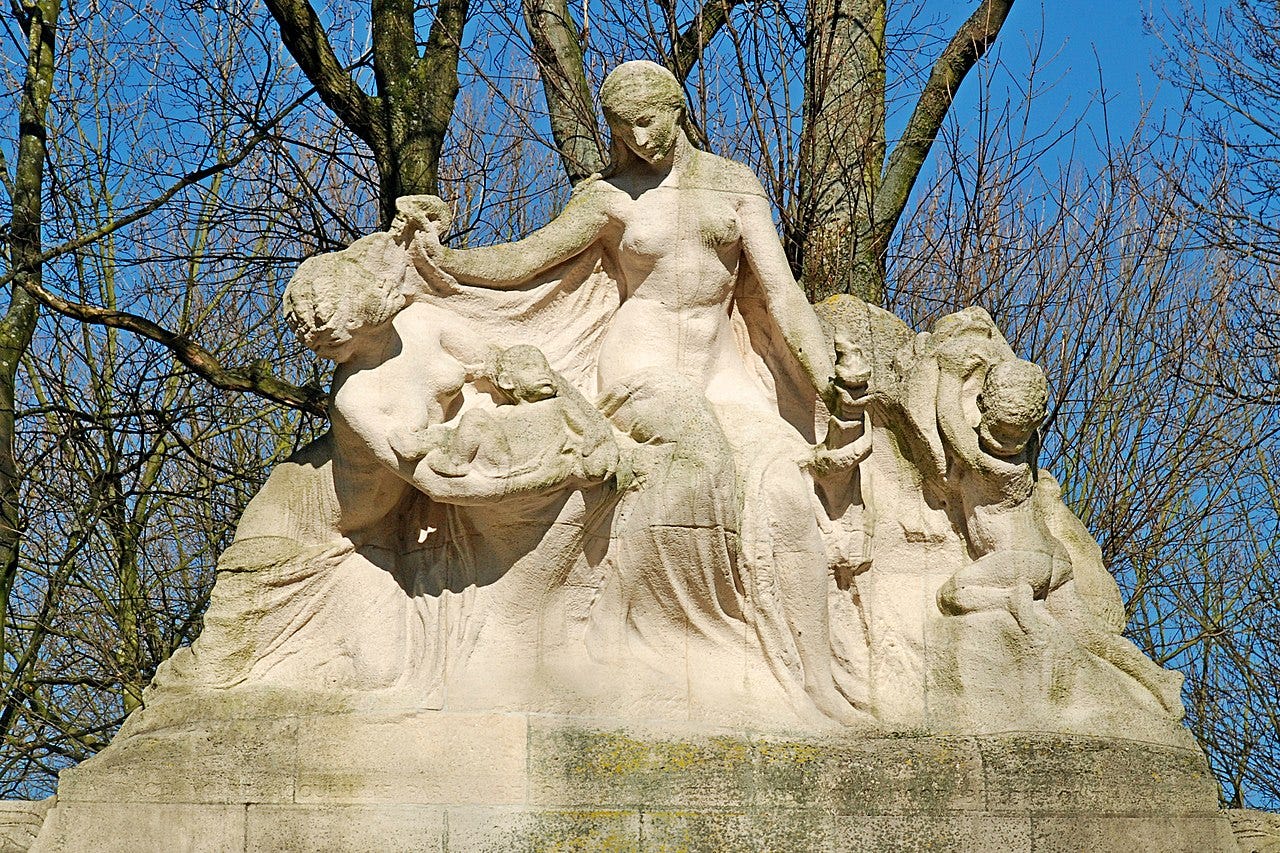
Considered the "bible" of Belgian colonial propaganda, the Monument to the Belgian Pioneers in the Congo, inaugurated in 1922, is an emblematic example. On 21 March 2024, on the International Day for the Elimination of Racial Discrimination, the Brussels Secretary of State for Urban Planning and Heritage, Ans Persoons, and the Brussels Secretary of State for Equal Opportunities, Nawal Ben Hamou, inaugurated the installation The Grand Opening (architects Traumnovelle) built on the colonial trace. The aim was to launch a year of deconstructing colonial propaganda and promoting new critical discourses on this past and its consequences.
Is it possible to fully decolonise a city while racism is still present in the modern day and in our politics?
Decolonizing the Brussels public space only makes sense if this approach is part of a global process of the decolonization of Brussels society. It is about updating the unequal power relations (political, economic, cultural) inherited from colonization, what specialists call coloniality, and working towards the progressive disintegration of their perverse effects in all areas of society (employment, housing, education, health, etc.).
The decolonisation of public space in Brussels is closely linked to the fight against racial discrimination. The action plan constitutes one of the required steps in the implementation of the Brussels plan to combat racism (pp. 98-99).
How long will the project take?
A first phase of implementation is currently scheduled for 2024 and 2025. However, it seems obvious that the work will have to continue in 2026 and beyond because "the decolonization of public space is, until further notice, a never-ending process" (2022 Report, p. 58).
How can we help if we're in Brussels?
Getting informed is a crucial step. For example, it is about becoming aware of the scale of the problem of decolonizing public space, the diversity of parameters to be taken into account and consequently the plurality of solutions to be considered.
The summary written by the sixteen Brussels experts offers a solid introduction and suggests reading avenues to explore certain specific aspects in more depth. Reading it helps avoid falling into the cliché of a process that would only aim to unbolt statues. Or even to go beyond the preconceived idea that these monuments reflect History.
Outside of the book field, I invite you to participate in the artistic program Intersections décoloniales during the second part of 2024 or to take part in one of the decolonial visits organized by the field associations.
You can follow the project on the urban.brussels website and social media.
So Now What Do I Do?
LEARN SOMETHING
Check out this experimental video essay on feminist climate justice.
Join this webinar on ‘Climate activism without burnout.’ 5th September at 18 CEST.
Download this free guide by Jasmine Rashid to being a financial activist.
TRY SOMETHING NEW
Register for the Green European Academy the 22-23 November in Brussels!
The Global Feminist Pitch is back to support young feminist documentary makers from the Global South & Eastern Europe. Apply by 22 September.
Join Fossil Free Drinks in Brussels on the 26th September in Kamilou from 19h. Organised by our friends over at Fossil Free Politics.
CHANGE THE SYSTEM
Join the Global Climate Strike on 20th September! We’ll be at the Brussels strike, and you can check out the map for protests near you.
Applications are open to join the Emerging Leaders Artivism Alliance for people with experience of migration or displacement, until 6th October
The new World Mental Health Day Community Fund is open to support projects working on improving wellbeing. Deadline 10th October.
The Green Fix is now offering low-cost sponsored slots on the newsletter. Book your slot by emailing wearethegreenfix@gmail.com.
Stay in the loop
You can follow us on X @TheGreenFix, Instagram @thegreenfix_ and LinkedIn. Connect with Cass on Instagram @cass.hebron and LinkedIn Cass J Hebron.


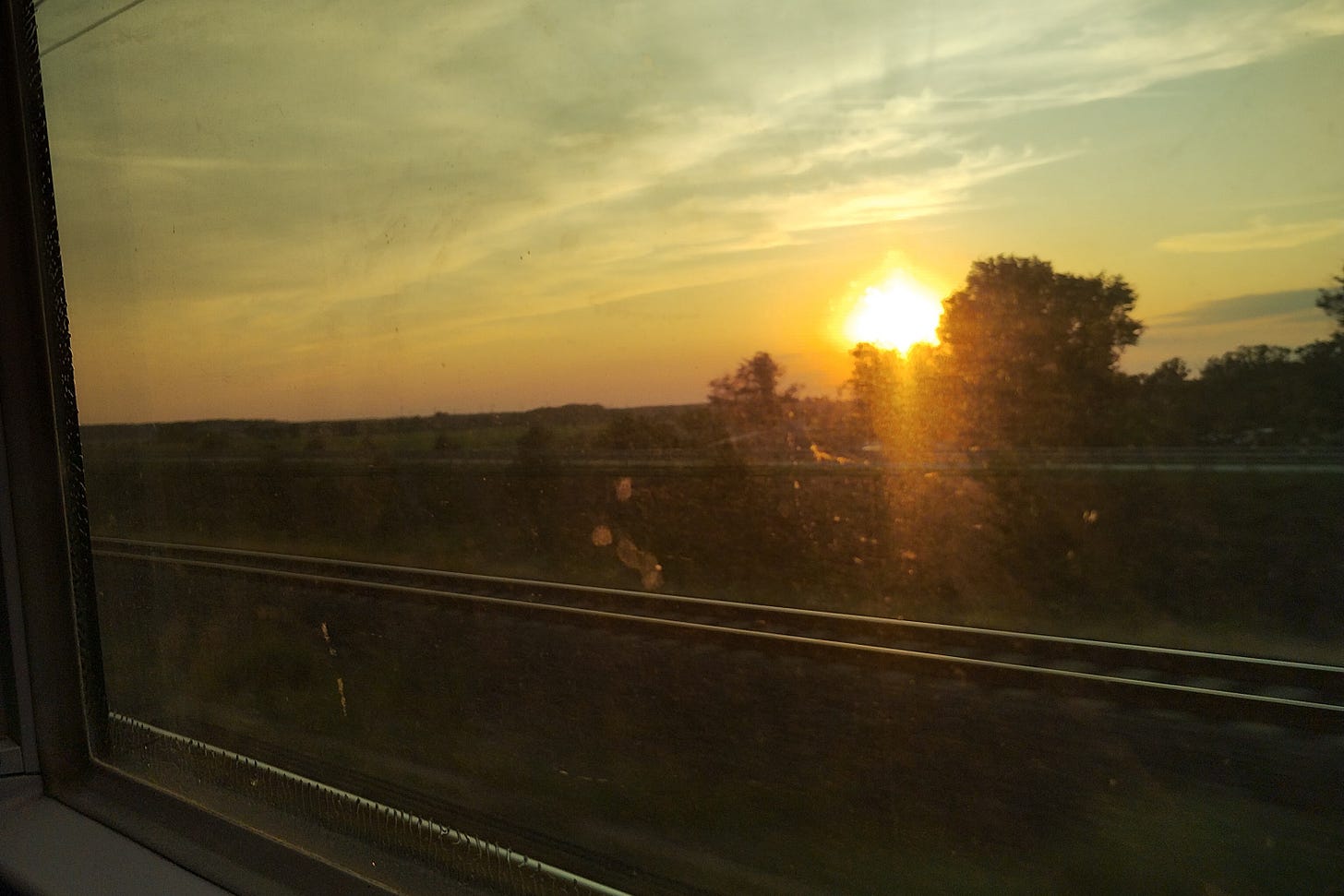
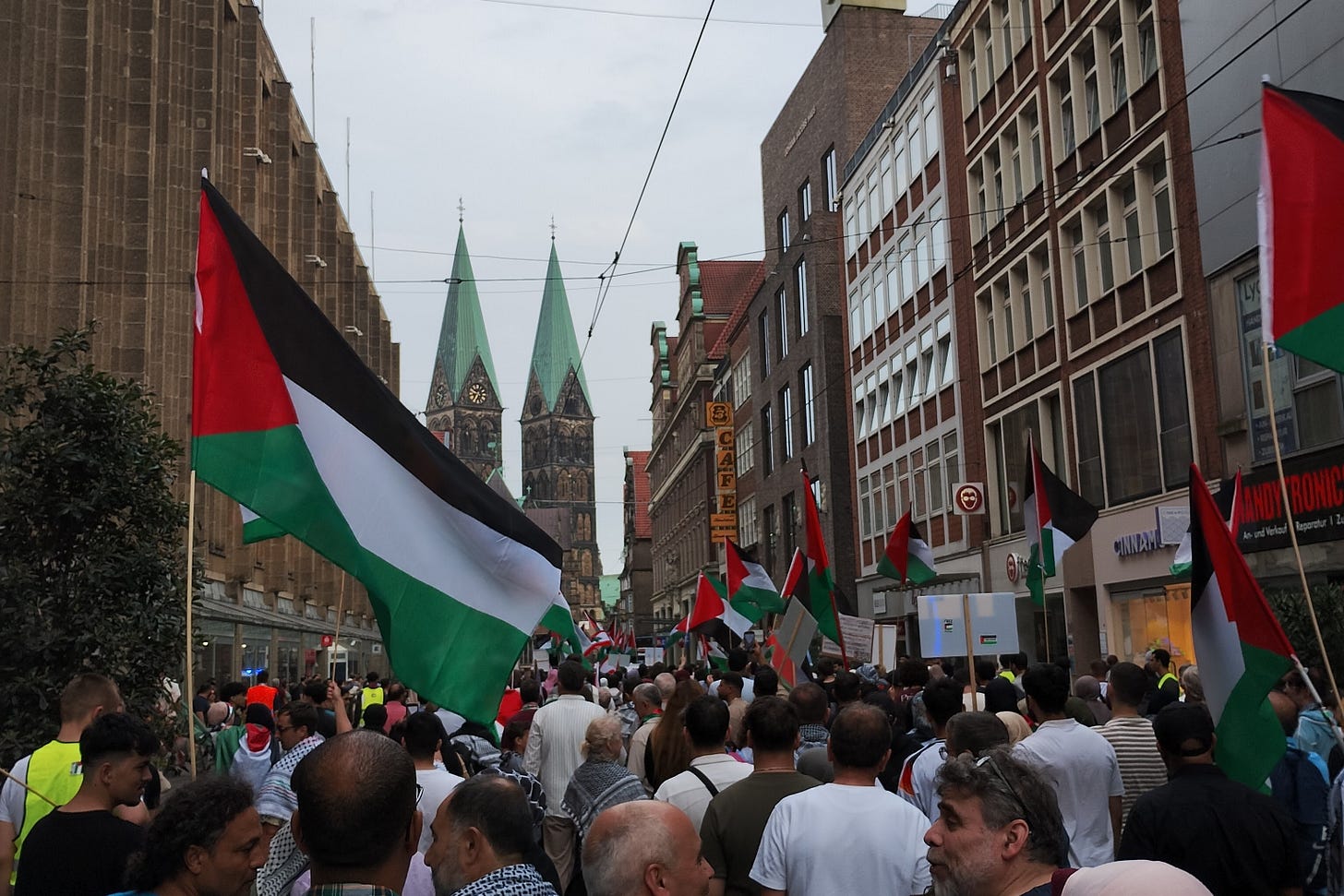
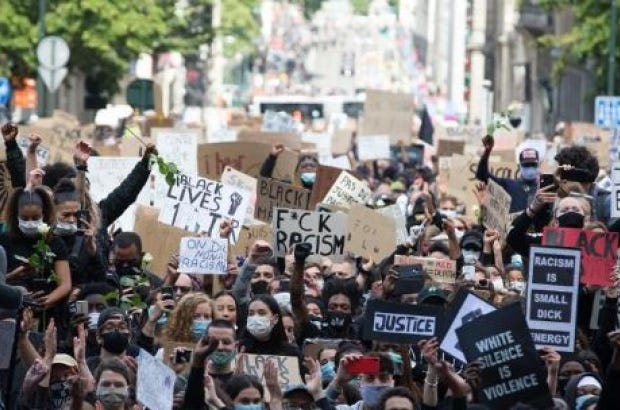
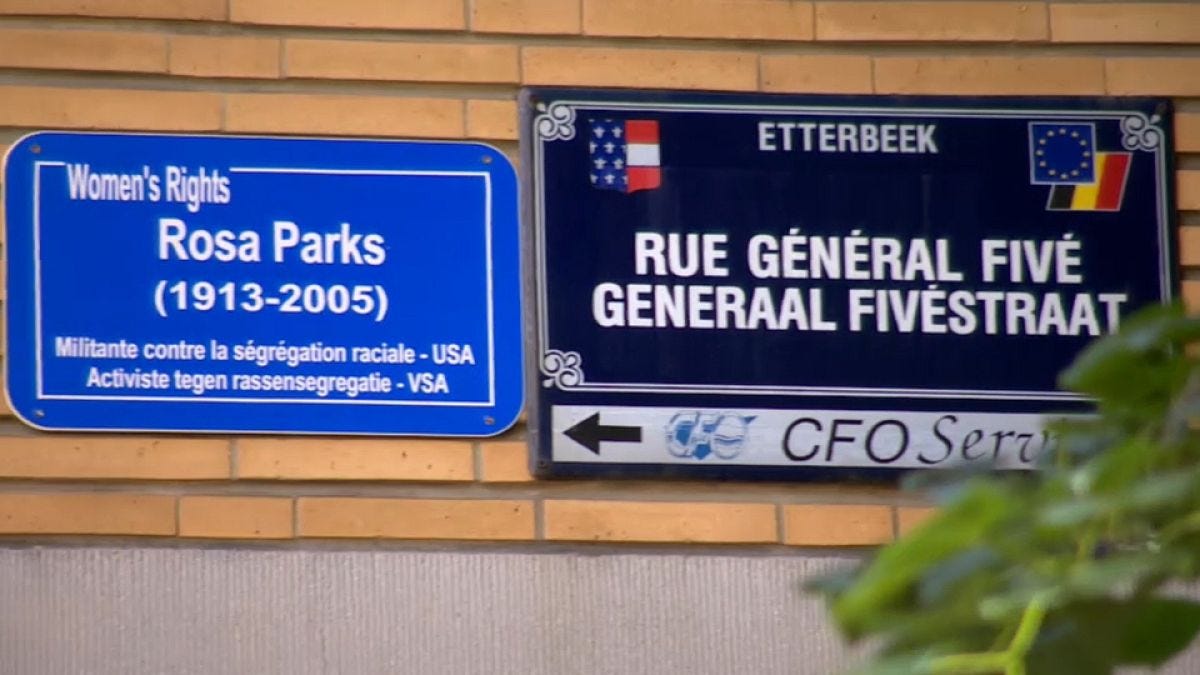
Its ok to take a break